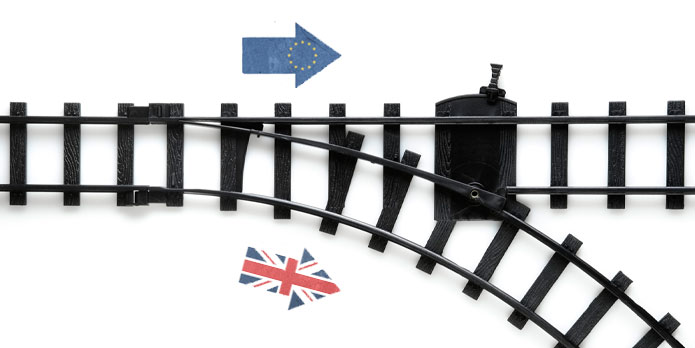
Brexit and the unbundling of Britain’s railway
Freshwater's London-based public affairs team explores how the rail and infrastructure industries have responded to Brexit over the last two months.
It has been two months since the historic day when the UK voted to leave the European Union. The last 60 days have heralded a number of surprises, including a new government being formed and the appointment of the new Prime Minister, Theresa May. The Brexit decision has created uncertainty and opportunity across many industries. We have been told that ‘Brexit means Brexit’, however what does Brexit actually mean for our infrastructure and rail sectors?
Like many infrastructure-based services, rail is an industry which can be inherently affected by political change, particularly when it creates uncertainty. Also, vice-versa, the quality of rail services can also have measurable effects on the wider economy.
Since the rail industry has been historically moulded by European legislation, Brexit brings a crucial debate on how the UK ‘unbundles’ from an EU dominated network. Both candidates for leader of the Labour Party have advocated full rail renationalisation, to counter what even Margaret Thatcher called “a privatisation too far”, however, there has been no indication on this direction of travel from the new PM. There is a feeling that Brexit negotiations must concede space for an independent British rail industry to organically grow at its own pace.
A good example of the measured approach rail and related sectors should expect is the effect a return to economic stability will have on rail service consumers. It was only a few months before the referendum that the rate of inflation was rising slower than at any time in the last six years; resting at 1.1% in January 2016. Countering the sterling drop in value should be a top priority, especially for rail service providers wary of Andrew Adonis’ damning prediction of a £100 per commuter ‘Brexit penalty’ per year.
As European regulation’s impact on the UK’s railways weakens, the newly created Department for Exiting the European Union – along with the Department for Transport – will have to effectively manage the move to internal rail regulation. The possible assimilation of EU Ten-10 projects, EU franchise bidding processes and EU technical standards for interoperability (TSI) will need to be addressed robustly. Crossrail chose not to comply with TSIs when building the Elizabeth Line, severing Electrostar access to inter-state services with ex-member states. Currently, since so many franchised train operating companies have European bases and head offices, connecting European rail services must be addressed urgently.
Moreover, since the Office of Rail and Road (ORR) already monitors rail economic and safety regulation, Brexit is likely to grant it greater access charging responsibilities, allowing it to promote more rail-on-rail competition within the network. For rail operators, this is a chance to abide by internal regulations which can still synchronise with international standards; thereby retaining its international status. However, there is still some debate as to whether this trumps direct regulatory inclusion in the EU, and the political effort it will require.
The freedom of goods and services around the European Union has been a key component of growing many UK rail companies. For examples, Stagecoach Group chief executive Martin Griffiths has claimed that the operator’s 2015 profit level increase and successful European sale to German company FlixBus were enhanced by the UK’s membership of the EU. Again, its significance in upcoming EU negotiations remains to be seen.
The acute need to keep this pipeline of productivity operative has also been highlighted in the construction industry. BWB Consulting chief executive, Steve Wooler, pointed out the “very large and culturally diverse” construction labour market, which has addressed a major skills gap in the construction sector “that the UK alone cannot possibly plug”. This has appeared to be a common line in most companies’ Brexit responses, as they ensure the internal market’s benefits are not understated.
Others have been less optimistic, with Sir Amyas Morse, auditor general of the National Audit Office, claiming there is “a tidal wave” of pressures in the infrastructure sector, as a result of Brexit, which will mean some projects may need to be scrapped. We have already seen the delay in the decision on Hinkley Point C and others have voiced concerns about the viability of HS2 and airport expansion in the south east of England. The industry as a whole will be looking to the new government for reassurances.
Certainly Brexit caused short-term uncertainty and an impulsively harsh economic reaction in many industries, but recent signs show optimism as well as dynamism. The main effects of Brexit on rail and infrastructure will come in the medium to long-term as decisions are made on existing projects and future investments become clearer.
Freshwater delivers strategic communications consultancy services across private, public and not-for-profit sectors.
